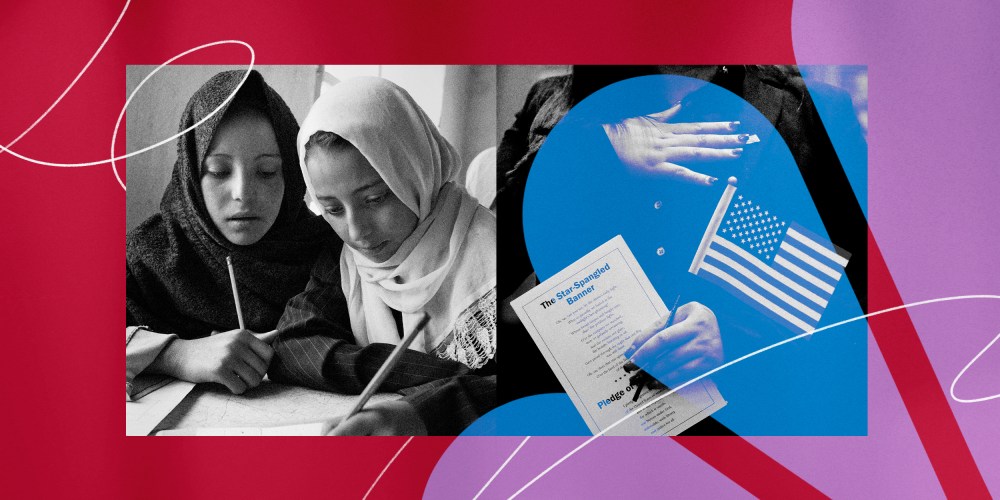As the U.S. leaves Afghanistan, I am haunted by the images of the women I first saw on the streets of Kabul in 1998. They were swathed in burqas from head to toe and robbed of all identity as religious police patrolled the dusty, war-torn streets in black pickup trucks, hunting down violators. On that day, as a concession to a visiting U.S. ambassador to the United Nations, the public amputations and executions in the sports stadium had been suspended. A small gesture.
But that nightmare could be the future for Afghan women and girls as the Taliban once again threaten to regain control.
That nightmare could be the future for Afghan women and girls as the Taliban once again threaten to regain control.
Now, girls can go to school and attend the coed American University of Afghanistan or, as documented in an Oscar-winning film first featured at the “Meet the Press Film Festival,” even learn to skateboard! Women can be doctors, teachers, members of Parliament. These are the human rights that make me passionate about covering foreign policy and about holding U.S. officials to account as they leave with no promise from the Taliban to preserve those rights.
But foreign policy is complicated, with many stakeholders. More than 750,000 American troops have rotated through Afghanistan in the last two decades, and more than 2,400 have died. What American family should suffer the loss of burying the last soldier to die fighting an unwinnable war? Too often, there is no correct answer for policymakers choosing between bad and worse options, even if they are willing to ignore the political fallout from their decisions. Occasionally, though, there are crises that present solutions of such moral clarity that there is no ambiguity. That is the case in another conflict zone, in northwest Syria, where millions of displaced Syrians, opponents of the regime, are living in refugee camps after having been bombed from their homes by the Assad government.

Syrian President Bashar al-Assad has regained control over 70 percent of the country. Left unchecked, he will wipe out these remaining areas of resistance, with help from Russia. Conditions for the more than 3 million people in tent camps in Idlib province are especially brutal: Covid-19 is rampant; there is little sanitation; water and food are scarce. Children climb piles of garbage, scavenging for bits of plastic to sell to buy food for their families.












